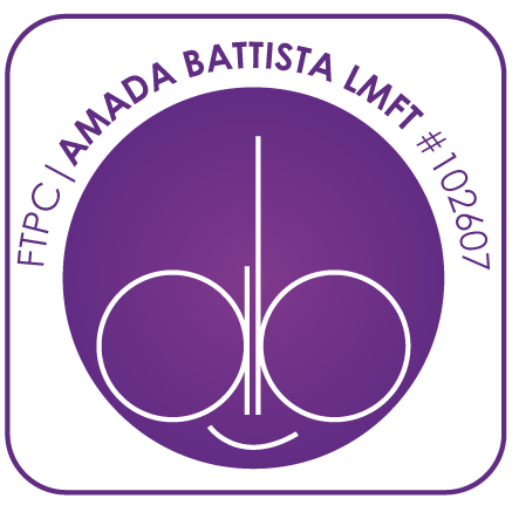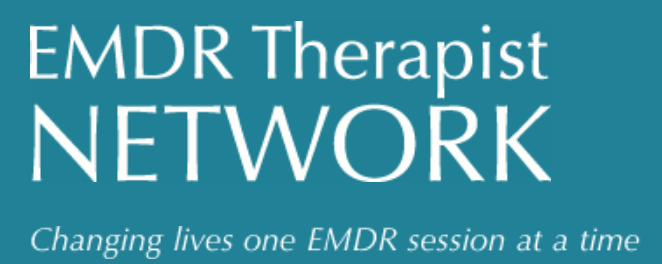
Amada Battista, M.A., L.M.F.T. #102607
AB Family Therapist Professional Corporation
Individuals - Couples - Family Therapy- EMDR Certified Therapist
My passion is rooted in helping individuals, couples, and families navigate the complexities of life and work toward achieving their personal and relational goals. Each person has the capacity for growth, healing, and transformation, and my role as a therapist is to provide the guidance, tools, and support needed to facilitate that process. I value a collaborative approach, working closely with my clients to ensure that the goals we set together for therapy are meaningful but also realistic and achievable. Every client brings unique experiences, strengths, and challenges, and by fostering a safe and empathetic environment, I aim to empower them to take charge of their journey toward wellness. Whether the focus is improving communication, deepening relationships, overcoming past trauma, or managing stress and anxiety, I work alongside my clients as a partner in their healing journey, always respecting their pace and preferences. I deeply believe that therapy is a shared process, and together, we can work toward lasting change and personal fulfillment.
One of the most effective therapeutic tools I have found in my practice is Eye Movement Desensitization and Reprocessing (EMDR). EMDR has been a powerful approach for clients struggling with a range of issues, including depression, anxiety, attachment problems, shame, trauma, and addiction. This evidence-based therapy helps clients process and resolve deeply ingrained emotional pain and traumatic memories in a way that fosters healing at a core level. Many clients, particularly those dealing with complex trauma, have found relief from their symptoms through EMDR when other forms of therapy may have only addressed surface-level concerns.
What makes EMDR particularly effective is its ability to target and reprocess distressing memories that continue to influence present-day emotions and behaviors. Clients who have suffered from long-standing feelings of guilt, fear, or inadequacy due to unresolved trauma often experience profound shifts after engaging in EMDR therapy. For those dealing with depression and anxiety, EMDR can help uncover the underlying causes of their emotional suffering, allowing them to address and heal from past experiences that have shaped their current mindset. In cases of attachment issues or shame, EMDR helps clients reconnect with their authentic selves and rebuild healthier, more secure relationships. I have seen firsthand how EMDR can transform clients' feelings and approach life, equipping them with the emotional resilience and freedom to pursue their goals with newfound confidence and clarity.
I have a bachelor's degree in Psychology and a Master of Arts in Clinical Psychology, MFT Specialization from The Chicago School of Professional Psychology.
Certifications
- EMDR Certified Therapist
- Anger Management Certified Counselor (CAMS-II)
- MBTI Step I and Step II Instruments Certified Practitioner
- CPI 260 Certified Practitioner
Trainings

- Certified Anger Management Counselor (CAMS-II)
- EMDR therapy DeTUR protocol
- Ketogenic Diets for Mental Health Clinician Training
- EMDR Therapy and Performance: Removing Block and Raising the Bar Clinicians Working with Athletes and Creatives
- Introduction to EMDR Therapy and Dissociative Disorders
- Improving Cultural Competency for Behavioral Health Professionals
- Domestic Violence Counselor Training
- Interpersonal Psychotherapy: Level A
- The Adult Attachment Interview
- EFT Externship
- Essentials of CBT: The Beck Approach
- Treating Toxic Shame: Somatic and Ego State Approaches for Working with Shame in EMDR Therapy
- Treating Early Attachment Wounding: Somatic Interventions to Enhance EMDR Therapy Effectiveness.
- Positive Psychology
- Memory Reconsolidation, the Flash Technique & EMDR therapy
- EMDR therapy attachment-focused model for healing the parent and the child and strengthening their bond
- Attachment in Couples Therapy
- Seeking Safety
- Gottman Method Couples Therapy: Level I & II trained
- Screening, Brief Intervention, and Referral to Treatment (SBIRT)
- Motivational Interviewing Part II: Increasing Skillfulness
- Trauma Resiliency Model Level I, II (TRM)
- DBT Strategies in Action: Changing Behavior, Accepting Reality & Resolving Conflict
- Grief Intensive Training
Member Associations and Social Media
THIS WEBSITE IS NOT TO BE USED FOR EMERGENCY SITUATIONS. IF YOU ARE EXPERIENCING SYMPTOMS LIKE SHORTNESS OF BREATH, CHEST PAIN, DIZZINESS, WEAKNESS, CONFUSION, HIGH FEVER, SUDDEN OR MAJOR BLEEDING, SEVERE ALLERGIC REACTIONS, ARE THINKING ABOUT HARMING YOURSELF OR OTHERS, OR ARE EXPERIENCING ANY OTHER PHYSICAL OR MENTAL SYMPTOMS THAT MIGHT SUGGEST A SERIOUS CONDITION OR LIFE THREATENING EMERGENCY, IMMEDIATELY VISIT THE NEAREST HOSPITAL EMERGENCY DEPARTMENT OR CALL 911 OR ANY OTHER APPLICABLE EMERGENCY NUMBER IMMEDIATELY.






